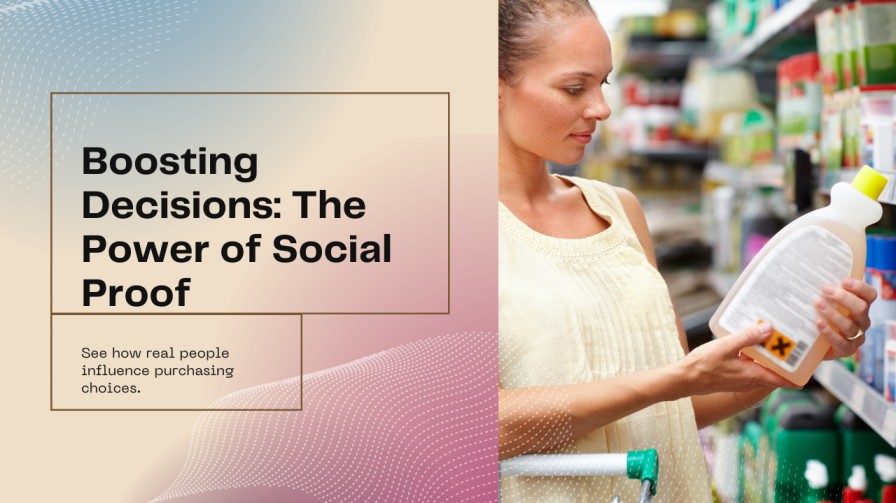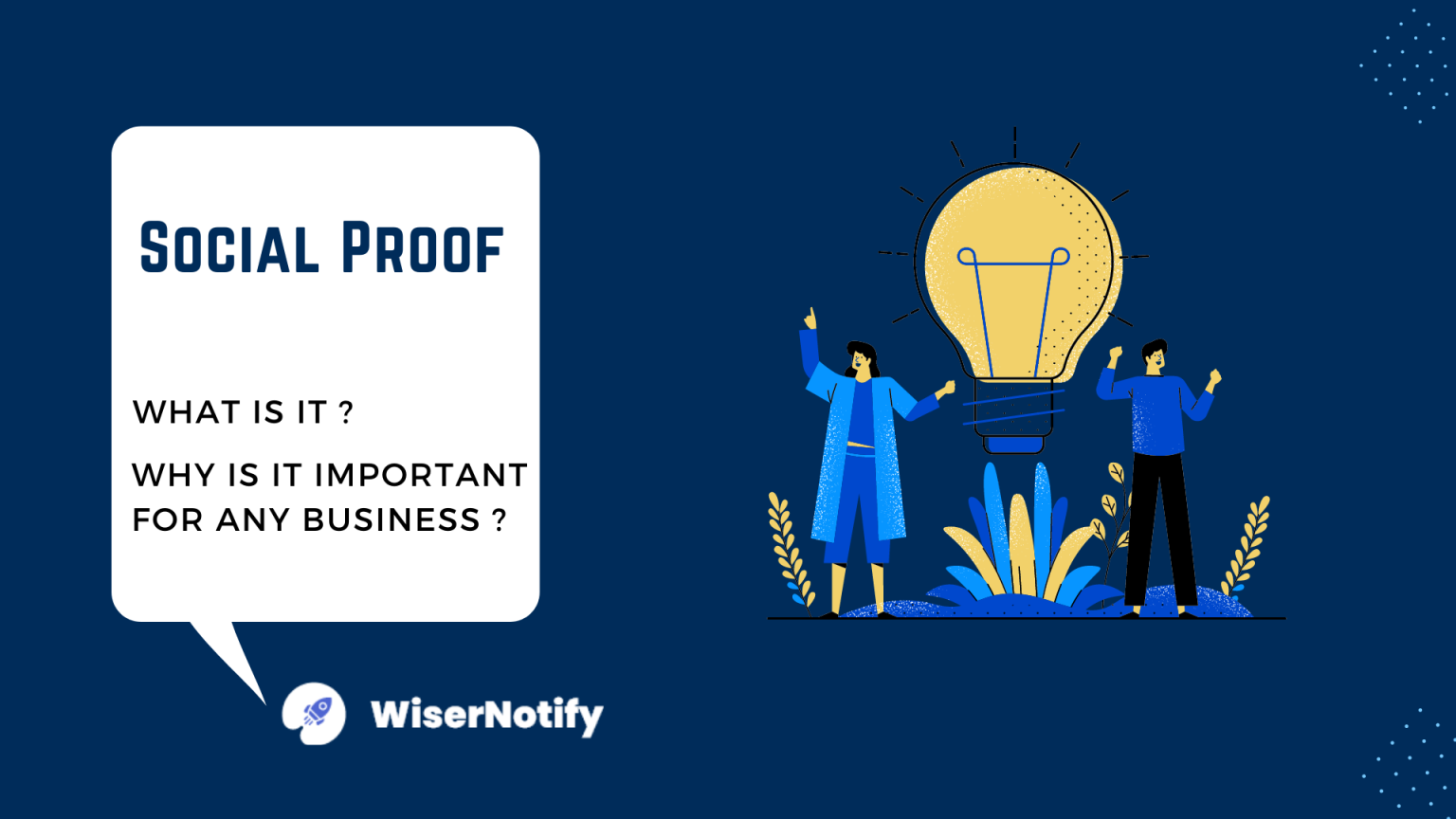This article provides an in-depth exploration of social proof psychology, a fundamental concept in understanding human behavior, particularly in the context of social influence and decision-making.
Social proof, also known as informational social influence, is a psychological phenomenon in which people mimic the actions of others in an attempt to reflect appropriate behavior in a given situation.
Understanding Social Proof Psychology
Social proof is a psychological phenomenon where people mimic the actions of others, assuming these actions reflect correct behavior.
This concept is especially potent in marketing, where the experiences and recommendations of others often influence consumer decisions.
For instance, have you ever chosen a product or service because it was popular or highly recommended by others?
Build trust & FOMO
Highlight real-time activities like reviews, sales & sign-ups.
What is Social Proof in Psychology?
Social proof in psychology refers to a social and psychological phenomenon where people copy the actions of others in an attempt to undertake behavior in a given situation.
This concept is based on the principle that people, especially when uncertain or lacking information, will look to others’ behavior and actions to determine the correct way to act.
Key aspects of social proof in psychology include:
Understanding social proof can significantly enhance your ability to influence behavior, whether in marketing, leadership, or everyday interactions.
Let’s break down these psychological underpinnings and sprinkle in some practical examples to see social proof in action.
1. Conformity: The Power of the Majority
People often look to the majority to determine their own actions, especially in unfamiliar situations.
For instance, when you see a long line outside a restaurant, your initial thought might be, “This place must be good!”
The mere presence of a crowd suggests quality and desirability.
2. Normative Influence: Fitting In
This aspect of social proof involves conforming to fit into a group.
For example, when a new employee notices all their colleagues taking a lunch break at a certain time, they’re likely to adjust their schedule to match—even if no one explicitly tells them to do so.
It’s about wanting to be part of the group.
3. Informational Influence: Looking to the Informed
In situations where the correct behavior is unclear, people tend to mimic the actions of those they believe have more knowledge.
A practical example is during a safety demonstration on a plane.
Passengers watch flight attendants closely because they are seen as the authority on what to do in case of an emergency.
4. Uncertainty: Clinging to Clues
When we’re unsure, we look to others for cues.
If you’re at a fancy dinner and unsure about which fork to use first, you’ll likely glance around and follow what others are doing.
This reliance on others serves as a compass when we’re navigating uncertainty.
5. Similarity: The Peer Effect
People who they perceive as being similar to themselves have a particularly strong influence.
For instance, a teenager might be more persuaded to try a new game if they see friends playing it, rather than hearing about it from someone outside their peer group.
6. Expertise and Credibility: Trusting the Experts
The opinions of experts or credible figures carry significant weight.
For example, if a respected financial advisor recommends an investment, clients are likely to consider it seriously because they trust the advisor’s expertise.
7. Visibility of Actions: Seeing is believing.
Actions that are more visible are more likely to be copied.
On social media, posts that have many likes or shares are often viewed and shared even further, as the high interaction rate signals to new viewers that the content is worth engaging with.
8. Multiplicity of Sources: The Bandwagon Effect
When multiple independent sources suggest the same thing, the message becomes much more compelling.
For example, if several different consumer reports and reviews praise the same smartphone model, potential buyers are likely to feel more confident in purchasing that model.
Incorporating these principles of social proof into your strategies—whether for marketing, influencing group dynamics, or even enhancing personal interactions—can lead to more effective and persuasive communication.
Build trust & FOMO
Highlight real-time activities like reviews, sales & sign-ups.
Impact of Social Proof Psychology on Consumer Behavior
1. Quickening Decision-Making Processes

Social proof psychology plays a pivotal role in reducing the time consumers spend deliberating over purchases.
When people see others making purchases, particularly in uncertain or new markets, they tend to follow suit.
For instance, seeing a large number of positive reviews on a product page directly influences the speed and confidence with which a potential buyer makes a purchase decision.
Example: Online shoppers often decide faster after reading numerous positive reviews on a product page on Amazon, seeing it as proof of the product’s reliability.
2. Altering Brand Perceptions

The principles of social proof psychology explain why customers might switch their loyalty to a brand that is well-liked or trusted by others.
This shift often happens when influential figures or a significant portion of their peer group endorse a brand, thus leveraging the psychological tendency to conform to popular opinion.
Example: Consumers switching to a new brand of sneakers after seeing multiple influencers on Instagram switch to that brand, believing the new brand offers better quality or style.
3. Reinforcing Purchase Satisfaction

Social proof psychology helps solidify satisfaction after a purchase.
Observing ongoing positive feedback from other customers reassures consumers about their choice, reducing buyer’s remorse, particularly in high-stake purchases.
This aspect of social proof ensures that consumers feel validated in their decisions.
Example: Apple users feel more confident in their purchase decisions after seeing tech experts praise the latest iPhone model on YouTube, reinforcing their satisfaction with the product.
4. Encouraging Trend Participation

Social proof psychology is crucial in encouraging consumers to participate in trends.
When consumers notice a trend taking off via visible endorsements—such as social media influencers partaking—it triggers a psychological urge to join in, ensuring they are part of the popular movement.
The “White Party” trend exemplifies social proof in action.
The widespread images of celebrities and influencers at glamorous all-white events on social media inspire others to host and attend similar parties, cementing the trend’s popularity.
5. Building Consumer Communities

Social proof psychology is instrumental in building robust consumer communities.
Brands that effectively create a sense of community among their users encourage new consumers to mirror buying behaviors seen within these groups, fostering a deeper brand connection and loyalty.
Example: Starbucks’ rewards program, where members see other members enjoying benefits, encouraging ongoing engagement and loyalty to the community.
6. Normalizing New Products and Innovations

Social proof psychology is key to normalizing and accelerating the adoption of new products and innovations.
When consumers see others using new technology or products, the social proof inherent in these actions reduces the perceived risk of trying something new, encouraging wider acceptance and usage.
Example: The normalization of electric vehicles through widespread adoption and visible charging stations, as well as endorsements by environmental influencers, making new users more comfortable with the shift.
Conclusion
Understanding social proof psychology allows marketers and businesses to craft strategies that not only influence consumer behavior but also build lasting relationships with their audience.
By tapping into this powerful psychological phenomenon, companies can enhance their market presence and ensure sustained consumer interest and loyalty.




